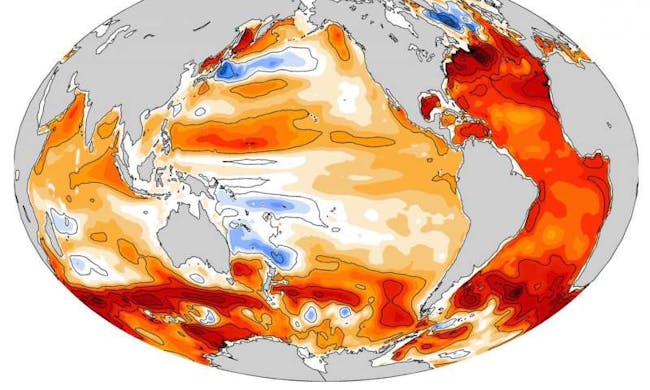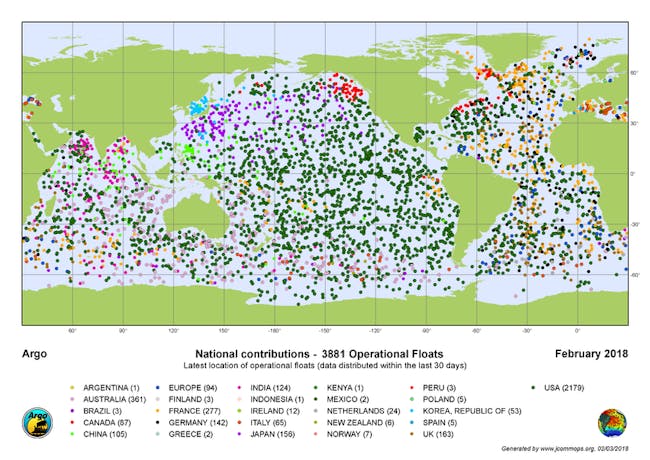“Global warming is ocean warming — and ocean warming has serious consequences.”
A crucial analysis released recently reveals that the world’s oceans are not only warming but also that their rate of warming is accelerating — a lot faster than we thought. In the Science paper, newly available data on ocean heat demonstrates that since the ‘60s, ocean warming has been stronger and more consistent than the Intergovernmental Panel on Climate Change previously reported. The consequences, scientists say, will be severe and long-lasting, but human action can still mitigate how bad the outcome will be.
The article is based on reconstructions of past ocean temperature records and observational records gathered by an ocean observing system called Argo. Since the early 2000s, this international program has collected real-time data from a global array of 3,000 floats, which measure ocean temperature, salinity, and currents. Data collected through Argo demonstrates that 2018 is likely to be the hottest year for the oceans on record.
“In this study, we show that global warming is ocean warming — and ocean warming has serious consequences,” lead author Lijing Cheng, Ph.D. of the Chinese Academy of Sciences tells Inverse. “The ocean warming is mainly driven by the accumulation of greenhouse gases in the atmosphere due to human activities.”
This increase in heat-trapping gases, Cheng explains, has produced an “energy imbalance” between incoming solar radiation and outgoing long-wave radiation. That imbalance leads to global heating. Now, it’s understood that more than 90 percent of the global warming heat ends up deposited in the world’s oceans.

This causality is extremely visible when one considers storms. Apart from causing an increase in heavy rains, the warming ocean also drives the energy of typhoons, hurricanes, and storms. Cheng emphasizes that “ocean warming will naturally support stronger and longer-lasting storms.”
Cheng’s analysis comes three days after the publication of another ocean warming study which determined that the total heat taken up by oceans over the last 150 years is about 1,000 times the annual energy use of everyone on Earth. That team also concluded that most of the excess energy stored in the climate system linked to greenhouse gas emissions has been taken up by the oceans, causing thermal expansion and sea-level rise.

It’s a situation that doesn’t appear to be remedied any time soon: According to the 30 climate models that Cheng and his team incorporated into their analysis, the oceans will continue to warm because, as Cheng puts it, “we simply have more and more greenhouse gases in the atmosphere.” The energy imbalance in the climate system is still there and it drives the global heating: Ocean warming will continue into the 21st century; how much depends on how humans react.
According to the ocean heat content record data analyzed here, if no actions are taken to limit greenhouse gases, by 2081 the warming in the upper oceans will be six times larger than the total ocean warming over the last 60 years. If the world limits the global temperature increase to below 2 degrees Celsius now — the target of the Paris Agreement — the total ocean warming could be cut in half by the same year.
Regardless, Cheng believes there is a clear need to continue to improve the world’s ocean observing and analysis system: As we move towards an increasingly more accurate understanding of the ocean heat content, we can prepare for the associated risks, adapt, and ideally, mitigate the problem.








